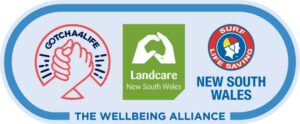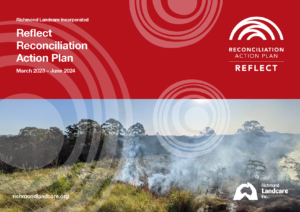Opinion Editorial: Turlough Guerin, Landcare NSW CEO
Not a day goes by when we are not bombarded by depressing news that would lead us to believe we are fighting a losing battle in the protection of our natural environment. Climate change, loss of biodiversity, soil and waterway degradation, loss of agricultural productivity – the list goes on. But where do you think governments are looking to for solutions? Capital markets.
Landcare NSW recognises the significant challenges of climate change and its impacts on farming, environmental conservation, and communities. Landcare’s greatest strength is local people working on local problems. Grassroots communities working together to ensure the work is done, to provide a solution for each particular, local environmental problem.
By implementing projects in urban, rural, and regional NSW, Landcare groups are pioneering ideas and practices that are driving the change towards more sustainable farming and increased biodiversity protection.
However, we cannot expect volunteers to solve the emerging environmental, biodiversity, climate change, and other landscape-related problems facing our state without financial support. These issues are complex and can only be addressed by all stakeholders, in particular Government working together with communities to design and deliver solutions.
Landcare NSW is actively engaging with its partners in Government to help facilitate the changes needed to halt environmental decline. By working with the members of the NSW Parliamentary Friends of Landcare or through our formal partnership arrangements with Local Land Services, the NSW Biodiversity Conservation Trust, the Department of Planning and Environment, NSW Reconstruction Authority, Saving our Species, as well as corporates and other NGOs, Landcare NSW ensures that sustainable farming, conservation, and resilient communities are at the heart of Government and corporate policies, programs and projects. In reality, these bodies need the support of Landcare to ensure their programs are delivered on the ground. This makes us an ideal delivery partner.
Anyone who knows a Landcarer knows that they are not looking for ‘hand-outs’. The value Landcare provides to the economy is immense. Research has shown that for every dollar the State invests in Landcare, we return four dollars. That makes Landcare coordinators and the groups that they support, incredibly good stewards of public funds, and important contributors to the economy.
As we often say: Landcare is People Care. If we look after our Landcarers, we keep our country healthy, too.
By ensuring Landcare is properly funded, the Government will ensure its programs consider key facets of the local landscape and cultural practices, and leverage Landcare’s immense social capital at the local level, ensuring buy-in by farmers and landowners to deliver long-term outcomes.
Our well-being as a State is dependent on the well-being of our planet. Time is running out. We must work together to take bold actions to protect, restore and sustainably manage our environment while safeguarding our economic well-being before it is too late. We have a solution at hand: it’s called Landcare. By activating our social capital Landcare can ensure financial investment is leveraged to benefit society, the environment and the economy.

